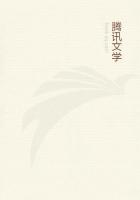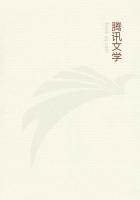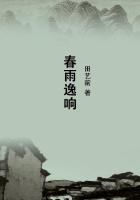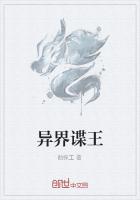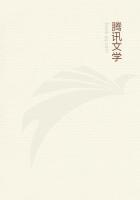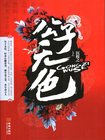The college--the university as it in time came to be--early broadened its scope, but it has from the first continued to aim at the needs of those unable to secure education without such help as, through its methods, it affords.
It was chartered in 1888, at which time its numbers had reached almost six hundred, and it has ever since had a constant flood of applicants.
``It has demonstrated,'' as Dr. Conwell puts it, ``that those who work for a living have time for study.'' And he, though he does not himself add this, has given the opportunity.
He feels especial pride in the features by which lectures and recitations are held at practically any hour which best suits the convenience of the students. If any ten students join in a request for any hour from nine in the morning to ten at night a class is arranged for them, to meet that request! This involves the necessity for a much larger number of professors and teachers than would otherwise be necessary, but that is deemed a slight consideration in comparison with the immense good done by meeting the needs of workers.
Also President Conwell--for of course he is the president of the university--is proud of the fact that the privilege of graduation depends entirely upon knowledge gained; that graduation does not depend upon having listened to any set number of lectures or upon having attended for so many terms or years. If a student can do four years'
work in two years or in three he is encouraged to do it, and if he cannot even do it in four he can have no diploma.
Obviously, there is no place at Temple University for students who care only for a few years of leisured ease. It is a place for workers, and not at all for those who merely wish to be able to boast that they attended a university. The students have come largely from among railroad clerks, bank clerks, bookkeepers, teachers, preachers, mechanics, salesmen, drug clerks, city and United States government employees, widows, nurses, housekeepers, brakemen, firemen, engineers, motormen, conductors, and shop hands.
It was when the college became strong enough, and sufficiently advanced in scholarship and standing, and broad enough in scope, to win the name of university that this title was officially granted to it by the State of Pennsylvania, in 1907, and now its educational plan includes three distinct school systems.
First: it offers a high-school education to the student who has to quit school after leaving the grammar-school.
Second: it offers a full college education, with the branches taught in long-established high-grade colleges, to the student who has to quit on leaving the high-school.
Third: it offers further scientific or professional education to the college graduate who must go to work immediately on quitting college, but who wishes to take up some such course as law or medicine or engineering.
Out of last year's enrolment of 3,654 it is interesting to notice that the law claimed 141;theology, 182; medicine and pharmacy and dentistry combined, 357; civil engineering, 37; also that the teachers' college, with normal courses on such subjects as household arts and science, kindergarten work, and physical education, took 174; and still more interesting, in a way, to see that 269 students were enrolled for the technical and vocational courses, such as cooking and dress-making, millinery, manual crafts, school-gardening, and story-telling. There were 511 in high-school work, and 243 in elementary education.
There were 79 studying music, and 68 studying to be trained nurses. There were 606 in the college of liberal arts and sciences, and in the department of commercial education there were 987--for it is a university that offers both scholarship and practicality.
Temple University is not in the least a charitable institution. Its fees are low, and its hours are for the convenience of the students themselves, but it is a place of absolute independence. It is, indeed, a place of far greater independence, so one of the professors pointed out, than are the great universities which receive millions and millions of money in private gifts and endowments.
Temple University in its early years was sorely in need of money, and often there were thrills of expectancy when some man of mighty wealth seemed on the point of giving. But not a single one ever did, and now the Temple likes to feel that it is glad of it. The Temple, to quote its own words, is ``An institution for strong men and women who can labor with both mind and body.''
And the management is proud to be able to say that, although great numbers have come from distant places, ``not one of the many thousands ever failed to find an opportunity to support himself.''
Even in the early days, when money was needed for the necessary buildings (the buildings of which Conwell dreamed when he left second-story doors in his church!), the university--college it was then called--had won devotion from those who knew that it was a place where neither time nor money was wasted, and where idleness was a crime, and in the donations for the work were many such items as four hundred dollars from factory-workers who gave fifty cents each, and two thousand dollars from policemen who gave a dollar each.
Within two or three years past the State of Pennsylvania has begun giving it a large sum annually, and this state aid is public recognition of Temple University as an institution of high public value.
The state money is invested in the brains and hearts of the ambitious.
So eager is Dr. Conwell to place the opportunity of education before every one, that even his servants must go to school! He is not one of those who can see needs that are far away but not those that are right at home. His belief in education, and in the highest attainable education, is profound, and it is not only on account of the abstract pleasure and value of education, but its power of increasing actual earning power and thus making a worker of more value to both himself and the community.

